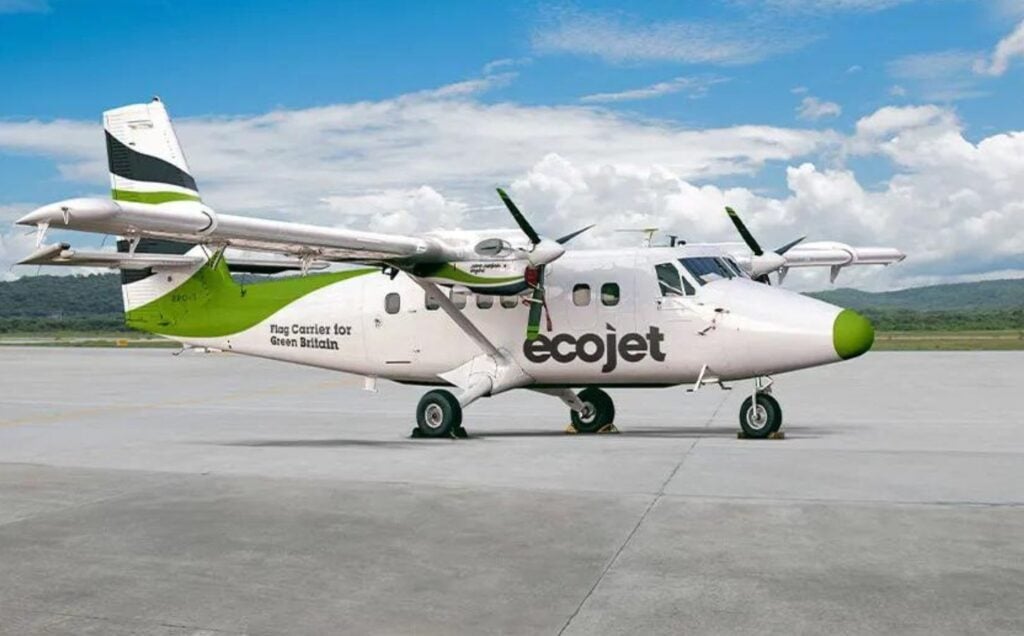The UK is set to launch its first ever electric airline, which will be powered by renewable energy.
Ecojet – the brainchild of green energy tycoon Dale Vince – will launch early next year. The airline consists of several 19-seater airplanes, all of which are capable of traveling 300 miles. The first flight will travel from Edinburgh to Southampton. It’s thought that other longer routes be on the cards in the future. Vince has stated that he hopes to introduce 70-seater planes that can fly to mainland Europe after around 18 months.
The airplanes are conventional planes, rather than new models. They will initially run on kerosene-based fuel. After about a year, however, they will be retrofitted with engines that can convert green hydrogen into electricity.
“The question of how to create sustainable air travel has plagued the green movement for decades, Ecojet is by far the most significant step towards a solution to date,” Vince said in a statement. “The desire to travel is deeply etched into the human spirit, and flights free of CO2 emissions, powered by renewable energy will allow us to explore our incredible world without harming it for the first time.”
Ecojet’s eco credentials

The airline will only serve plant-based food on board. Animal agriculture is thought to be responsible for more greenhouse gasses than all transportation combined (including planes), so this decision is in line with its eco credentials. Staff will also reportedly wear environmentally friendly uniforms, and there will be no single use plastic served.
While Ecojet will not launch as an electric airline, Vince told the Guardian that an initial use of kerosene-based fuel was essential in order to launch quickly, secure planes and landing spots, and “keep up the momentum” of the project.
“It does feel like a contradiction but at the heart of this project is upcycling existing planes and retrofitting them,” he told the publication. “This is the pragmatic approach, which means we won’t lose time. We will build up the infrastructure, get the planes in the air and swap in the engines when they are available.”
According to Vince, travelling on his planes will not cost you more than other conventional airlines. He is appealing to the mass market, meaning it ideally won’t be just environmentally conscious consumers who come aboard his flights.
The environmental impact of planes
The aviation industry alone is thought to be responsible for 2.5 percent of global CO2 emissions. Most conventional jets are run on gasoline, though some use biofuels – which convert to CO2 when burned.
Aviation emissions have doubled since the mid-1980s. They’ve also been growing at a similar rate as other CO2 emissions, meaning their share of these has been pretty much unchanged since then.






